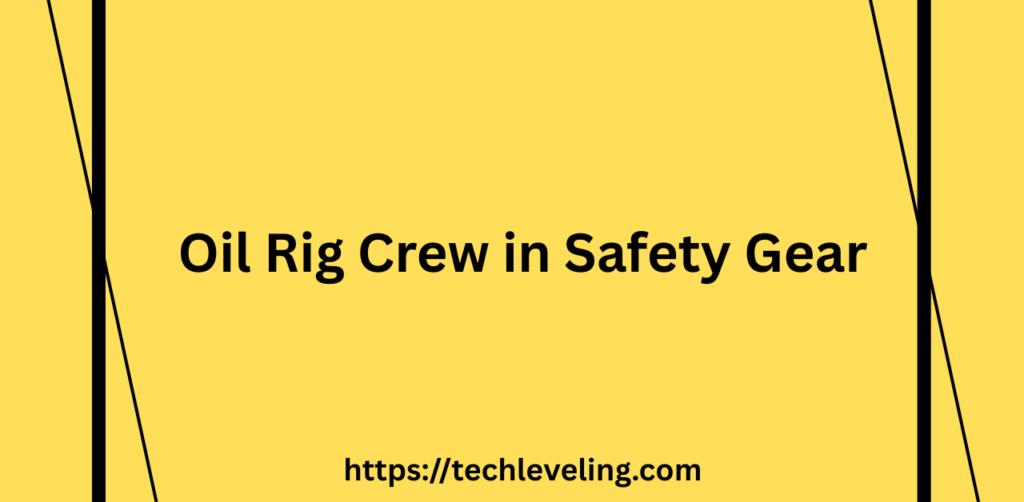Oil Rig Jobs: A Complete Guide to Careers, Salaries, and Opportunities in 2025
Working on an oil rig can be one of the most rewarding and challenging jobs in the energy sector. With global demand for oil remaining strong, oil rig jobs continue to offer high salaries, unique experiences, and long-term career growth. Whether you’re interested in offshore oil rig jobs, oilfield positions in Texas, or simply want to know how much oil rig workers make, this guide covers everything you need to know.

Table of Contents
Understanding Oil Rig Jobs and Their Work Environment
An oil rig is a large industrial structure used to drill and extract petroleum and gas from beneath the earth’s surface. These rigs can be located on land or offshore (in the ocean). Working on an oil rig means being part of a highly skilled, disciplined, and safety-driven crew that operates 24/7 in rotating shifts.
Oil rig workers often stay on-site for several weeks at a time, especially in offshore roles, followed by weeks off. This rotating schedule is tough but attractive to many who prefer intensive work followed by extended rest periods.
Offshore Oil Rig Jobs: Life at Sea
Offshore oil rig jobs are based on rigs stationed in oceans, seas, or gulfs. Workers are flown or boated in and typically live on the rig for weeks during their shift.
Offshore roles include:
- Roustabouts: Entry-level workers who handle maintenance and support.
- Roughnecks: Help with drilling operations under supervision.
- Derrickhands: Manage drilling fluids and assist with pipe positioning.
- Drillers and Toolpushers: Supervise drilling operations and ensure productivity and safety.
- Engineers, electricians, and medics also support the rig’s operations.
Offshore work is physically demanding and requires strong teamwork, endurance, and a commitment to strict safety standards.
Top Oil Rig Occupations and Their Roles

There are dozens of oil rig occupations, each playing a critical role in daily operations. Here’s a breakdown of common positions:
- Driller: Operates drilling equipment and supervises the rig crew.
- Rig Manager (Toolpusher): Oversees the entire rig and ensures everything runs smoothly.
- Derrickhand: Works on the drilling platform, handling drilling mud and pipe systems.
- Motorman: Maintains engines, generators, and mechanical systems.
- Roustabout: Assists with loading, maintenance, and cleaning tasks.
- Safety Officer: Ensures compliance with health and safety protocols.
- Welder/Fitter: Handles fabrication and repair of rig structures and pipes.
Whether you’re starting out as a roustabout or aiming for a high-paying engineering role, there’s room for growth in every oil rig career path.
How Much Do Oil Rigs Workers Make in 2025?
Oil rig worker salaries vary depending on experience, job role, location, and whether the rig is offshore or onshore.
Here’s an estimated salary range in 2025:
| Position | Average Annual Salary (USD) |
|---|---|
| Roustabout | $45,000 – $60,000 |
| Roughneck | $55,000 – $70,000 |
| Derrickhand | $65,000 – $80,000 |
| Driller | $80,000 – $100,000 |
| Toolpusher | $100,000 – $130,000 |
| Rig Welder | $60,000 – $85,000 |
| Offshore Medic | $70,000 – $90,000 |
| Petroleum Engineer | $100,000 – $150,000 |
Offshore oil rig jobs tend to offer higher pay due to the difficult working conditions and extended time away from home.
Oil Field Jobs in Texas: The Heart of U.S. Oil Production
If you’re looking for oil field jobs in Texas, you’re in one of the best locations in the world. The Permian Basin, Eagle Ford Shale, and other regions offer thousands of opportunities for workers—from rig hands to engineers.
Texas oil jobs span both onshore and offshore rigs, and many employers offer entry-level training programs to get new workers up to speed. In addition to rig work, the state has strong demand for drivers, heavy equipment operators, mechanics, and safety inspectors.
Whether you search for “oil field jobs near me” or directly apply to companies in Midland, Odessa, or Houston, Texas is filled with oil career possibilities in 2025.
Entry-Level Opportunities: No Experience, No Problem

Getting started on an oil rig doesn’t always require a degree or technical background. Many workers begin as roustabouts or general laborers and gain experience through hands-on work and on-site training.
Some companies offer:
- Paid training for safety and rig operations
- Certifications like H2S, TWIC, or SafeLand
- Apprenticeship-style programs for mechanical and electrical roles
Once you’re in the industry, promotion is often based on performance, reliability, and certifications—not just education.
Skills and Requirements to Work on an Oil Rigs

While many oil rig positions are physically demanding, they also require critical thinking, teamwork, and attention to safety. Here are some essential skills and qualifications:
- Physical stamina and strength
- Ability to work long shifts (12+ hours)
- Willingness to work in remote or extreme environments
- Basic mechanical or electrical knowledge
- Valid safety and offshore certifications
- Clean drug test and background check
Soft skills like communication and problem-solving are equally important, especially in team-based environments like offshore rigs.
Advantages of Working on an Oil Rigs
Oil rig careers offer benefits beyond a competitive salary. Some of the biggest advantages include
- Extended paid time off (e.g., 2 weeks on, 2 weeks off)
- Room and board covered during work periods
- Overtime and hazard pay options
- Job security in a high-demand industry
- Travel opportunities for offshore positions
- Potential for advancement into specialized or supervisory roles
For workers willing to handle the tough conditions, oil rigs can provide a stable, high-paying career with clear growth potential.
Where to Find Oil Rig Jobs in 2025
Finding oil rig jobs in 2025 is easier than ever thanks to online platforms, recruiting agencies, and direct applications.
Some helpful job sources:
- Indeed, LinkedIn and RigZone
- Company websites like Schlumberger, Halliburton, Baker Hughes
- Local job boards in Texas or oil-producing states
- Recruiters specializing in energy and oilfield placements
Be sure to keep your resume updated, highlight safety certifications, and include relevant physical or technical skills when applying.
Conclusion

Is an Oil Rig Job Right for You? If you’re looking for a high-paying job that rewards hard work, offers adventure, and doesn’t require a college degree, a career on an oil rig could be perfect for you. From offshore platforms to Texas oil fields, opportunities continue to grow in 2025. Whether you’re just starting out or seeking to climb the ladder, oil rig jobs offer both challenge and reward in one of the world’s most vital industries.

